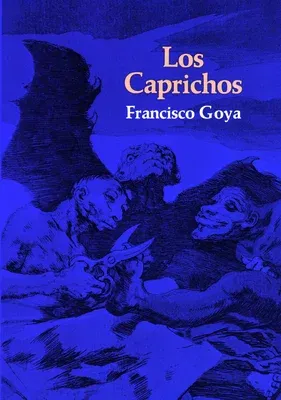After a serious illness in 1792, Goya spent five years recuperating and
preparing himself for the burst of creativity that was to follow. He
read deeply in the French revolutionary philosophers. From Rousseau he
evolved the idea that imagination divorced from reason produces
monsters, but that coupled with reason "it is the mother of the arts and
the source of their wonders." In Spain he saw a country that had
abandoned reason, and he peopled Los Caprichos with the grotesque
monsters that result from such an action. Plate after plate shows
witches, asses, devils, and other strange creatures, many of which are
caricatures of members of the society against which Goya was fighting.
The plates were first published in 1799. There are still in existence,
however, six extremely rare sets of artist's proofs, considered by most
who have managed to see them as infinitely superior to the work actually
published. Now, for the first time, this edition reproduces one of these
sets of 80 prints, together with the "Prado" manuscript, a commentary on
the plates. In addition, this collection contains supplementary material
to the Los Caprichos series, inlcuding a never-before-published study
for Caprichos 10; three unique proofs of plates probably intended for
publication with the others; a preliminary drawing for plate I, a
self-portrait of Goya (which appears as the frontispiece to this
volume); and a unique proof of "Woman in Prison" which may represent an
earlier version of Caprichos 32.

